Few actors embodied effortless cool like James Garner, whose natural charm, wry smile, and understated confidence made him one of television’s most beloved leading men for decades. From his breakout roles in the 1950s to his memorable performances well into the 2000s, Garner brought a distinctive blend of rugged masculinity and gentle sensitivity that resonated with audiences across generations. Whether playing a cardsharp, a private investigator, or a small-town pharmacist, his characters shared that unmistakable Garner quality—a man comfortable in his own skin who could handle any situation with intelligence, humor, and an appealing reluctance to take himself too seriously.
1. Bret Maverick in “Maverick” (1957-1962)
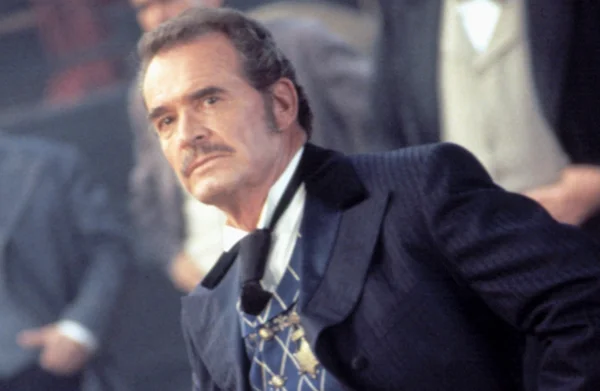
As the smooth-talking gambler Bret Maverick, Garner revolutionized the Western genre by creating a hero who preferred outwitting his opponents rather than outdrawing them. His Maverick was a delight of contradictions—a man who claimed to live by the creed “my old pappy used to say, if you can’t fight ’em and you can’t join ’em, best bet is to be somewhere else”—yet somehow always found himself entangled in other people’s problems despite his best efforts to avoid trouble. The role showcased Garner’s perfect comic timing and his ability to appear simultaneously heroic and self-servingly pragmatic, creating a new archetype of the reluctant hero that would define many of his future roles. Just in time for Garner’s April 7 birthday, Remind shared some fascinating trivia that just further shines a spotlight on what a remarkable life he led.
In an era of straight-shooting Western protagonists, Garner’s Maverick stood apart with his black attire, sardonic humor, and preference for playing cards rather than drawing guns. The character’s tendency to talk his way out of dangerous situations rather than resort to violence highlighted Garner’s versatility as an actor who could command a scene with nothing more than a raised eyebrow or perfectly delivered quip. Though he left the series after three seasons due to a contract dispute with Warner Bros., his portrayal of Bret Maverick remained so definitive that when he returned to the role nearly twenty years later, audiences embraced him as though he’d never left the poker table.
2. Jim Rockford in “The Rockford Files” (1974-1980)
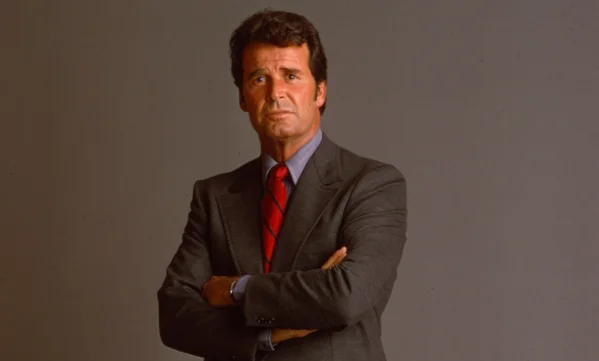
As ex-con turned private investigator Jim Rockford, Garner created perhaps his most iconic character—a reluctant hero who lived in a dilapidated trailer, charged “$200 a day plus expenses,” and had a standing policy of avoiding cases involving missing persons, wives who wanted evidence on their husbands, or anything to do with the mob. The role perfectly showcased Garner’s ability to appear simultaneously world-weary and compassionate, creating a detective who solved cases not through brilliant deduction but through dogged persistence and an understanding of human nature. His answering machine messages that opened each episode became a beloved signature of the show, immediately establishing the precarious financial and personal circumstances of a man who couldn’t seem to catch a break. The Boston Globe readily credits this trailblazing series with teaching some truly essential facts of life, thanks in no small part to Garner’s grounding performance.
Rockford’s famous “J-turn” (a driving maneuver where Garner would spin the car 180 degrees at high speed) became emblematic of the character’s resourcefulness and Garner’s insistence on performing his own stunts despite the toll they took on his body. The character’s complicated relationship with his father Rocky (played by Noah Beery Jr.) provided emotional depth rarely seen in detective series of the era, showing a middle-aged man still seeking his father’s approval while simultaneously trying to shield him from worry. Garner won an Emmy for the role in 1977, validating what audiences already knew—his portrayal of the reluctant, put-upon, but ultimately noble private eye had created a new template for television detectives that continues to influence the genre to this day.
3. Bret Maverick in “Bret Maverick” (1981-1982)
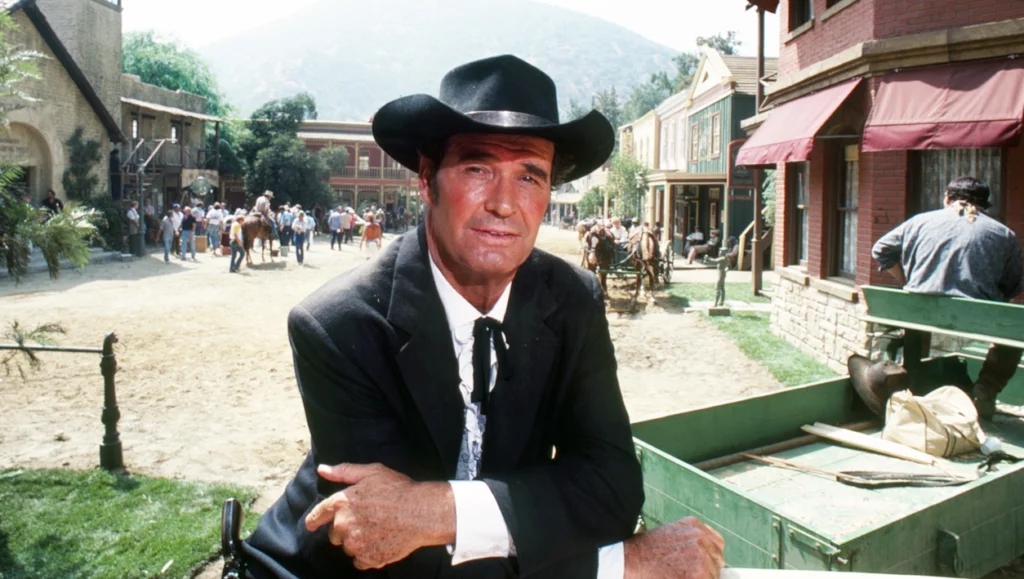
Returning to his breakthrough role nearly two decades after leaving the original series, Garner proved that some characters are timeless when handled by the right actor. This older Maverick had settled down (somewhat) in the town of Sweetwater, Arizona, becoming part-owner of the local saloon while still finding plenty of opportunities for the card playing and confidence schemes that were his trademark. The revival showcased Garner’s seamless ability to recapture the character’s charm while acknowledging the passage of time, creating a Maverick who was a bit wiser but no less willing to bend the rules when necessary. Naturally, GoldDerby gave this program a special shoutout in its ranking of his best performances that stand the test of time.
The series cleverly balanced nostalgia for the original show with fresh storylines that allowed Garner to display his evolved skills as an actor who had grown more nuanced with experience. His chemistry with supporting cast members, particularly Stuart Margolin (who followed Garner from “The Rockford Files”), demonstrated the actor’s generous ensemble approach that made him beloved by colleagues throughout his career. Though short-lived, the series reinforced Garner’s special ownership of the character and proved that his particular brand of laconic charm remained as effective in the 1980s as it had been in the 1950s.
4. King Marchand in “Victor/Victoria” (1982)
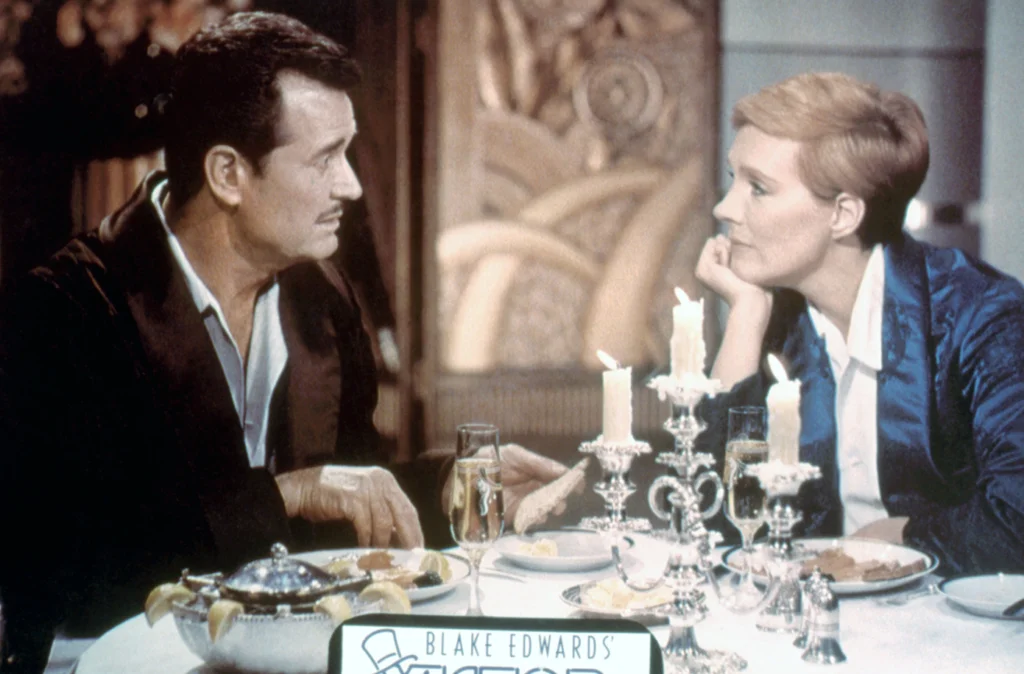
Though primarily a theatrical film, this Blake Edwards classic was later adapted for television, with Garner’s performance as the gangster King Marchand standing as one of the most sophisticated demonstrations of his range. As a tough guy who falls in love with a woman (Julie Andrews) pretending to be a man pretending to be a woman, Garner brought remarkable nuance to a character experiencing a profound identity crisis. His portrayal balanced machismo with vulnerability as Marchand questioned not just his romantic choices but his fundamental understanding of himself.
The role showcased Garner’s ability to tackle complex emotional territory while maintaining his characteristic charm, proving he could handle material that explored gender and sexual identity with sensitivity rather than caricature. His scenes with Andrews demonstrated their remarkable chemistry, particularly in moments where Marchand’s attraction battles with his confusion, creating a compelling portrayal of a man whose certainties about himself are being dismantled by love. While not a traditional television role, the film’s popularity in TV broadcasts and its later adaptation for television make it an essential entry in understanding Garner’s ability to bring depth and complexity to characters while never losing his fundamental likability.
5. Murphy Jones in “Murphy’s Romance” (1985)
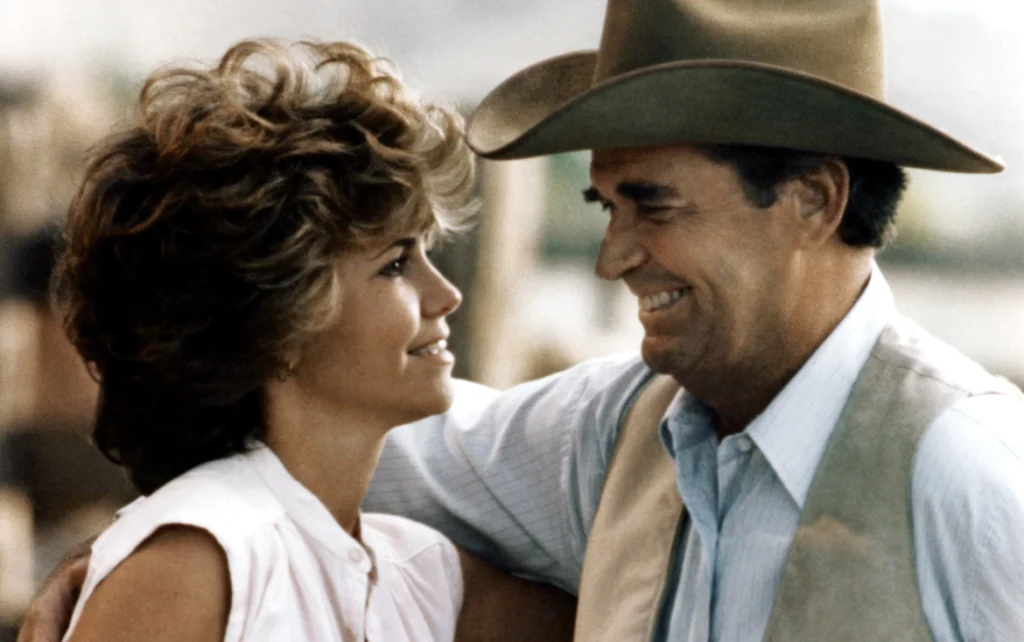
Garner earned an Academy Award nomination for his role as the small-town pharmacist Murphy Jones, a character that translated perfectly to television where the film became a staple of afternoon broadcasts. His portrayal of a widower who falls for Sally Field’s younger divorcée highlighted Garner’s appeal as a mature romantic lead who could convey more with a glance than most actors manage with a monologue. The character’s quiet dignity and gentle pursuit of romance showcased Garner’s ability to play ordinary men with extraordinary depth, finding the heroism in daily kindness rather than grand gestures.
Murphy’s combination of old-fashioned values and progressive attitudes about relationships made him the perfect vehicle for Garner’s unique blend of traditional masculinity and emotional intelligence. The ease with which he portrayed intergenerational romance—without ever making it seem inappropriate or forced—demonstrated his remarkable ability to make potentially controversial material feel natural and even inevitable. For many television viewers who discovered the film through broadcasts, Murphy Jones became the quintessential James Garner character—a decent man whose fundamental goodness was matched only by his reluctance to call attention to it.
6. Jason McCullough in “Support Your Local Sheriff!” (1969)
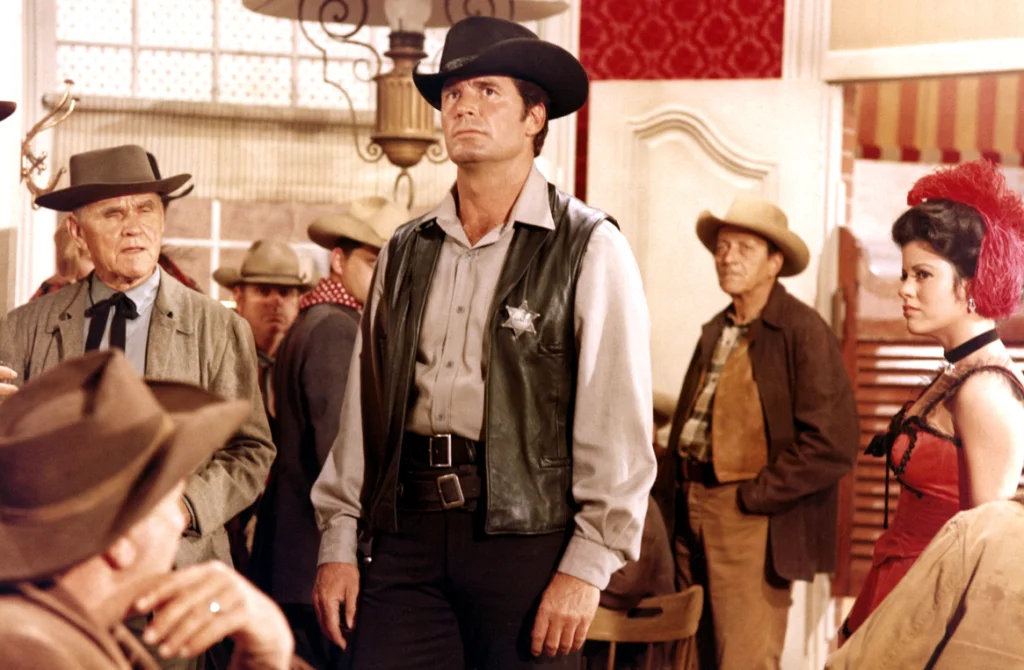
Though originally a theatrical release, this Western comedy found its largest and most devoted audience through repeated television airings, where Garner’s performance as the capable but unconventional Sheriff McCullough became a beloved staple of weekend afternoon broadcasting. As a drifter who takes the sheriff’s job in a lawless mining town simply because it pays well, Garner delivered deadpan humor and understated competence that made his character both hilarious and heroic. His famous jail scene—where he keeps a prisoner in a cell without bars simply by drawing a line and noting “these are the bars”—perfectly encapsulated Garner’s ability to command respect through intelligence rather than force.
The film’s playful subversion of Western tropes provided the perfect showcase for Garner’s unique approach to heroism—a man who prevails not through superior gunplay but through psychological insight and creative problem-solving. His chemistry with Joan Hackett and the film’s strong supporting cast, including Walter Brennan and Jack Elam, highlighted Garner’s generosity as a performer who elevated everyone around him while never demanding center stage. The film’s popularity in television rotation cemented certain Garner mannerisms in the public consciousness—the raised eyebrow, the slow double-take, the perfectly timed pause before a punchline—characteristics that would become his signature in all future roles.
7. Philip Marlowe in “Marlowe” (1969)
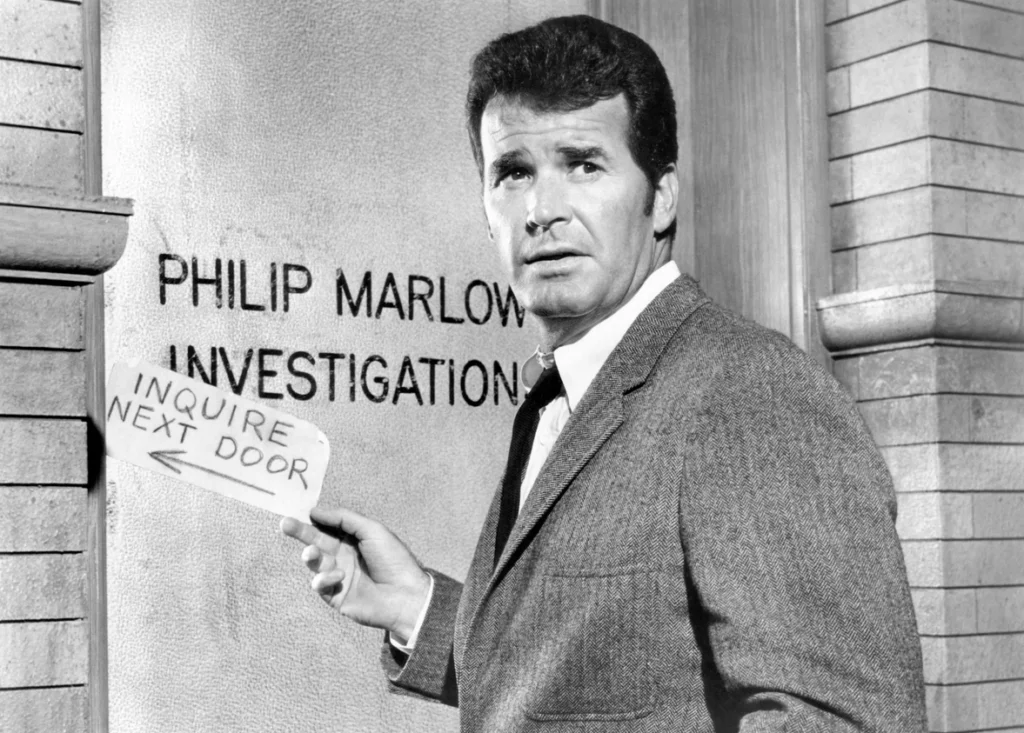
Taking on Raymond Chandler’s iconic detective in this adaptation of “The Little Sister,” Garner brought his distinctive blend of world-weariness and moral clarity to one of literature’s most famous gumshoes. Though the film updated the setting to contemporary Los Angeles rather than Chandler’s 1940s milieu, Garner’s performance captured the essential Marlowe—a knight-errant in a corrupt world, maintaining his code of honor despite abundant evidence that it’s a sucker’s game. His portrayal balanced hard-boiled toughness with an underlying compassion that felt authentic to both Chandler’s character and Garner’s persona.
The film’s frequent television broadcasts throughout the 1970s and 1980s introduced many viewers to Garner in a role that clearly influenced his later portrayal of Jim Rockford, showing the through-line in his approach to detective characters. His confrontation with a young Bruce Lee (in one of the martial artist’s earliest Hollywood roles) demonstrated Garner’s willingness to let other performers shine, even when it meant having his character’s office destroyed in spectacular fashion. Though less well-known than his other detective roles, Garner’s Marlowe stands as an important interpretation of the character—one that emphasized the detective’s fundamental decency rather than his cynicism, setting a template for Garner’s future exploration of reluctant heroes.
8. Charlie Madison in “The Americanization of Emily” (1964)
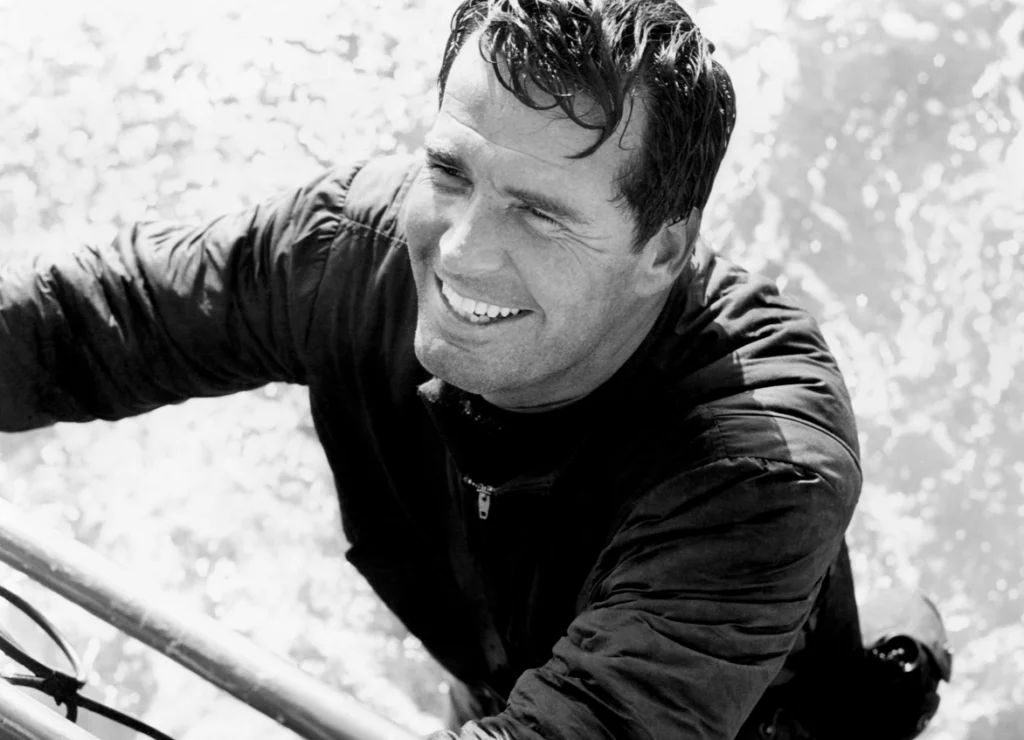
This dark comedy about a self-proclaimed coward working as a Naval officer during World War II became a television staple that showcased Garner’s ability to make morally complex characters sympathetic. As Lieutenant Commander Charlie Madison, a “dog robber” who procures luxuries for admirals while actively avoiding combat, Garner delivered Paddy Chayefsky’s sharp dialogue with a conviction that made his character’s anti-heroic philosophy surprisingly persuasive. His romance with Emily (Julie Andrews), a British war widow, provided emotional depth as Madison’s calculated cynicism clashed with and eventually transformed her idealism about war and heroism.
The film’s regular television broadcasts throughout the 1970s and 1980s exposed viewers to what Garner himself considered his favorite role—a character who openly challenges conventional notions of military heroism only to find himself unwillingly turned into a hero through the absurdity of military politics. His monologues about the dangers of glorifying war (“We shall never end wars by sanctifying them”) showcased Garner’s ability to deliver complex ideological content while maintaining his character’s fundamental charm and relatability. For television audiences who knew him primarily from lighter fare, these broadcasts revealed Garner’s range as an actor capable of blending comedy with profound moral questions without sacrificing entertainment value.
9. Jim Rockford in “The Rockford Files” TV Movies (1994-1999)
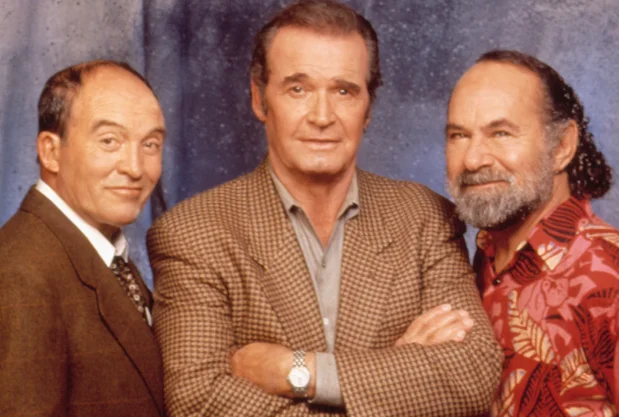
Returning to his most famous character nearly fifteen years after the original series ended, Garner demonstrated the enduring appeal of Jim Rockford in eight television movies that found the aging detective still living in his trailer, still reluctant to take dangerous cases, and still getting beaten up with alarming regularity. These revivals honored the spirit of the original series while acknowledging the passage of time, showing a Rockford whose knees weren’t quite what they used to be but whose fundamental decency remained unchanged. The films’ strong ratings proved that audiences maintained a deep connection to both the character and to Garner himself, whose presence on screen felt like visiting with an old friend.
The movies reunited Garner with many of his original co-stars, including Stuart Margolin as the perpetually scheming Angel and Joe Santos as the long-suffering Sergeant Becker, recreating the chemistry that had made the original series so beloved. Garner’s willingness to show Rockford’s physical vulnerability—moving a bit slower, grimacing a bit more after fights—added poignancy to these later portrayals, suggesting a man continuing to do the right thing despite knowing the personal cost. For viewers who had grown older alongside Garner, these performances offered a reassuring continuity—a demonstration that growing older didn’t have to mean abandoning the qualities that defined you in your prime.
10. Duke in “Streets of Laredo” (1995)
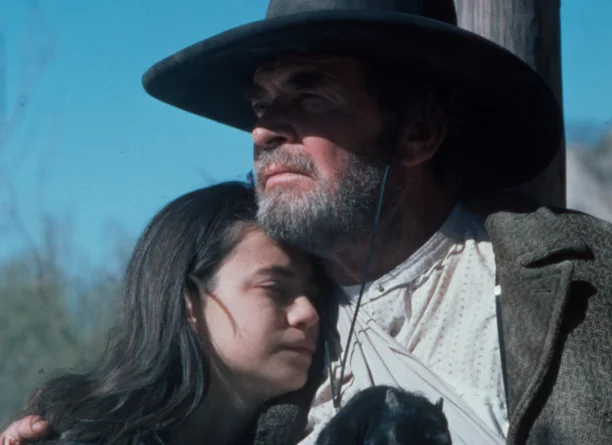
In this sequel to “Lonesome Dove,” Garner took on the role of former Texas Ranger Captain Woodrow Call, a character previously played by Tommy Lee Jones, bringing his own interpretation to the aging lawman pursuing a Mexican bandit in the twilight of the Old West. The miniseries showcased Garner’s ability to convey physical and emotional pain, as Call battles not just external enemies but the deterioration of his own body and the weight of his violent past. His performance highlighted Garner’s late-career willingness to embrace vulnerability without sacrificing the core strength that had always defined his screen presence.
The role allowed Garner to revisit the Western genre that launched his career, but from the perspective of an older man reckoning with the mythology that characters like Bret Maverick had playfully subverted decades earlier. His chemistry with co-stars Sissy Spacek and Sam Shepard created a rich portrayal of late-life friendships formed through shared hardship and mutual respect. For television audiences who had grown up watching Garner, his performance as Call offered a moving meditation on aging and legacy from an actor whose own career had spanned the entire history of television Westerns—from their glamorous heyday to their more complex, revisionist incarnations.
11. Jim Egan in “8 Simple Rules” (2003-2005)
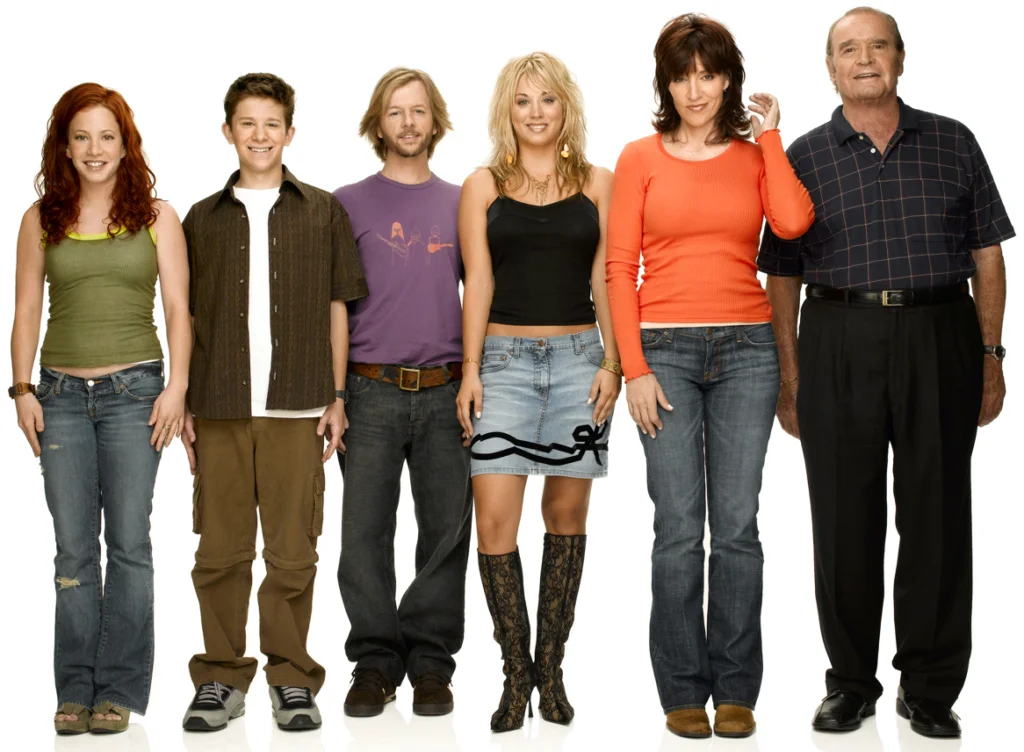
Following the tragic death of series star John Ritter, Garner joined this family sitcom as grandfather Jim Egan, helping to fill the void left by Ritter’s passing while creating a character distinctly his own. As the father of Katey Sagal’s character who moves in to help raise his grandchildren, Garner brought gravitas and warmth to what could have been a standard grumpy-old-man role, creating instead a nuanced portrait of a man reassessing his paternal role late in life. His natural chemistry with the young cast members, particularly Kaley Cuoco and Amy Davidson, highlighted Garner’s ability to connect with performers of any generation.
The role showcased his perfect timing in a traditional multi-camera sitcom format—a departure from the hour-long dramas and action-comedies that had defined much of his career. His developing relationship with fellow television veteran Suzanne Pleshette, who played his old flame, provided a sweet late-life romance that resonated with older viewers while educating younger audiences about what chemistry really looks like. For many younger viewers, this role introduced them to Garner’s distinctive charm, creating a new generation of fans who would go on to discover his earlier work through streaming services and classic television channels.
12. Noah Calhoun in “The Notebook” (TV Version) (2004)
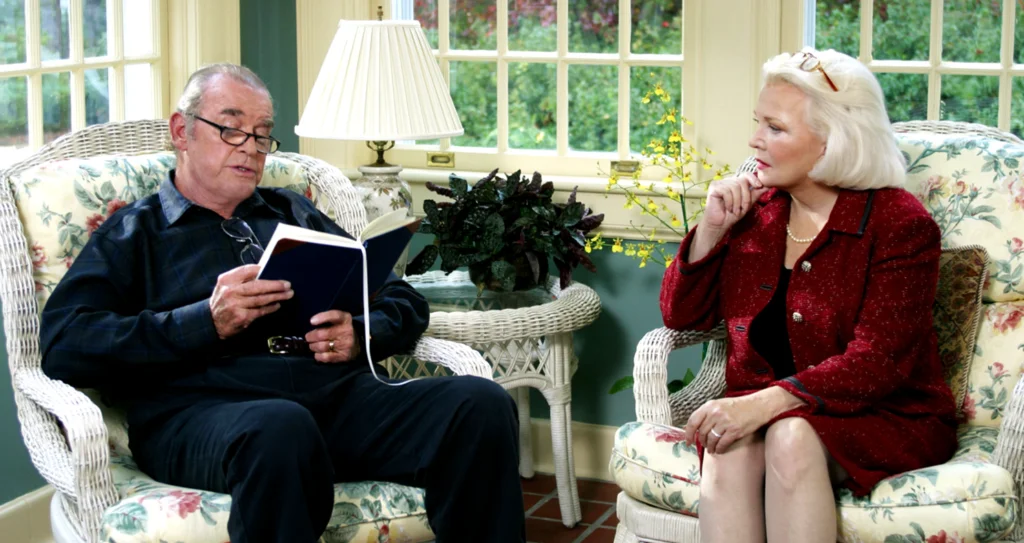
While primarily known as a theatrical film, “The Notebook” found an enormous audience through television broadcasts, with Garner’s performance as the elderly Noah Calhoun providing the emotional anchor for this time-shifting romance. As a husband reading the story of his life to his wife who suffers from dementia, Garner brought dignity and devotion to a role that could have easily descended into sentimentality. His scenes with Gena Rowlands created some of the most genuine moments in the film, portraying a love that transcends memory loss through daily acts of patience and commitment.
The television broadcasts of the film, often around Valentine’s Day, introduced Garner to younger viewers who knew him only from his late-career roles, showcasing his ability to convey decades of love in a single glance. The contrast between Ryan Gosling’s portrayal of young Noah and Garner’s elderly version created a through-line of quiet determination—the younger man’s passionate pursuit evolving into the older man’s steadfast devotion. For television audiences, Garner’s performance offered a master class in subtle emotional expression, demonstrating how an actor with decades of experience could convey complex feelings with minimal dialogue and maximum impact.
13. The Bumper in “My Fellow Americans” (1996)
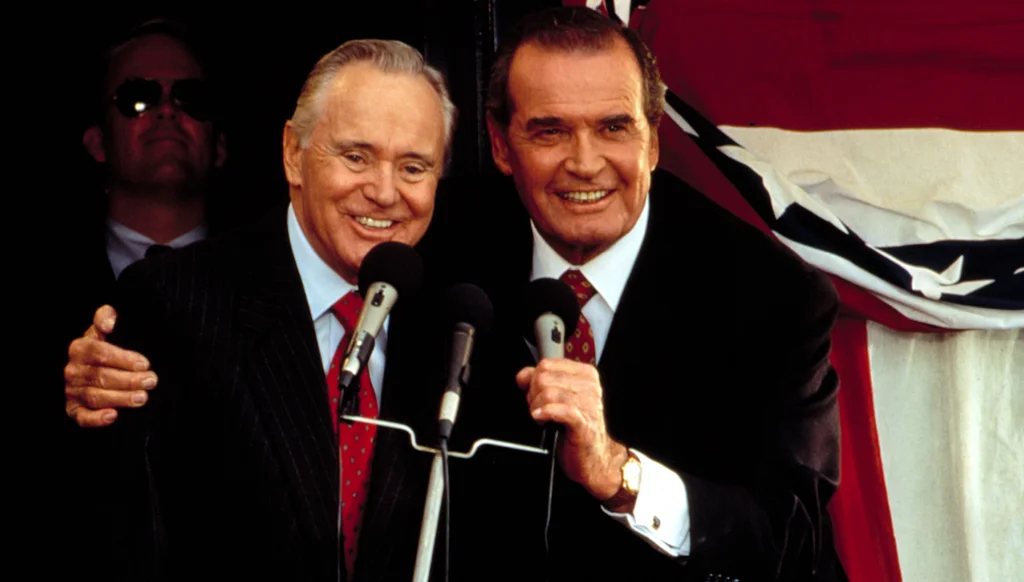
In this political comedy that became a cable television staple, Garner played a Democratic former president forced to go on the run with his Republican predecessor and longtime rival (Jack Lemmon) when they uncover corruption in the current administration. As former President Matt Douglas, Garner embodied political charm and pragmatism, creating a character whose policy positions mattered less than his fundamental decency when faced with a constitutional crisis. His chemistry with Lemmon created a credible evolution from bitter enemies to reluctant allies to genuine friends over the course of their cross-country adventure.
The film’s regular television airings throughout the late 1990s and 2000s showcased Garner’s ability to find the humanity in political figures without resorting to caricature or partisan simplification. His portrayal balanced comical moments (like the two presidents attempting to blend in at a gay pride parade) with more serious reflections on public service and personal integrity. For television viewers tired of actual political divisiveness, Garner’s performance offered a reassuring fantasy—a politician who could set aside partisanship when fundamental principles were at stake, embodying an old-school approach to governance where personal honor trumped political advantage.
James Garner’s television legacy extends far beyond these thirteen roles, encompassing dozens of guest appearances, television films, and variety show performances that showcased his remarkable versatility and consistent appeal across six decades in the entertainment industry. What made him uniquely beloved was not just his handsome features or his impeccable timing, but a quality that came through in every performance—a fundamental decency that made audiences feel they were in good hands. In an industry often obsessed with reinvention, Garner’s enduring cool came from something rarer—authenticity. As his long-time friend and co-star Stuart Margolin once observed, “Jim doesn’t act, he just is.” That natural quality made him not just a television star but a welcome guest in America’s living rooms—someone viewers were always happy to see, whether he was dealing cards, solving cases, or simply offering that reassuring Garner smile that suggested everything would work out fine in the end.


